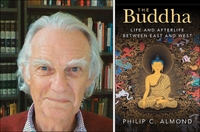Mary Magdalene: A Cultural History
Philip C. Almond. Cambridge Univ, $39.99 (350p) ISBN 978-1-00-922169-6
In this edifying chronicle, Almond (The Antichrist), a professor emeritus of the history of religious thought at the University of Queensland, Australia, studies Mary Magdalene’s historical iterations in Christian canon and culture. Almond traces the “history of how and why Christianity, with the minimal historical data at its disposal, created its ideal Christian saint,” characterized by a paradoxical meeting of sinfulness and holiness. He remarks, “we know virtually nothing of her,” describing her as a cipher who has been depicted as a wealthy follower of Jesus, a penitent sinner, a jilted wife, Jesus’s lover, a preacher, a mystic, and a miracle worker. Different eras have shaped Mary Magdalene’s story to meet their needs, Almond contends, describing how medieval relics laid claim to her supposed physical remains as “mobile sites of supernatural power” and how Pope Gregory the Great’s conflation of Mary Magdalene with the “fallen woman” from Luke led to the 18th-century establishment of “Magdalen houses” that provided asylum for “repentant prostitutes.” Almond’s research is meticulously detailed, yet entertainingly delivered (he quips that a medieval sermon “began with an account of the early life of Mary that was not present within the Gospels or for that matter, until this sermon, anywhere else”). Learned and incisive, this is a top-notch work of Christian cultural analysis. (Feb.)
Details
Reviewed on: 10/04/2022
Genre: Religion
Other - 1 pages - 978-1-009-22170-2


